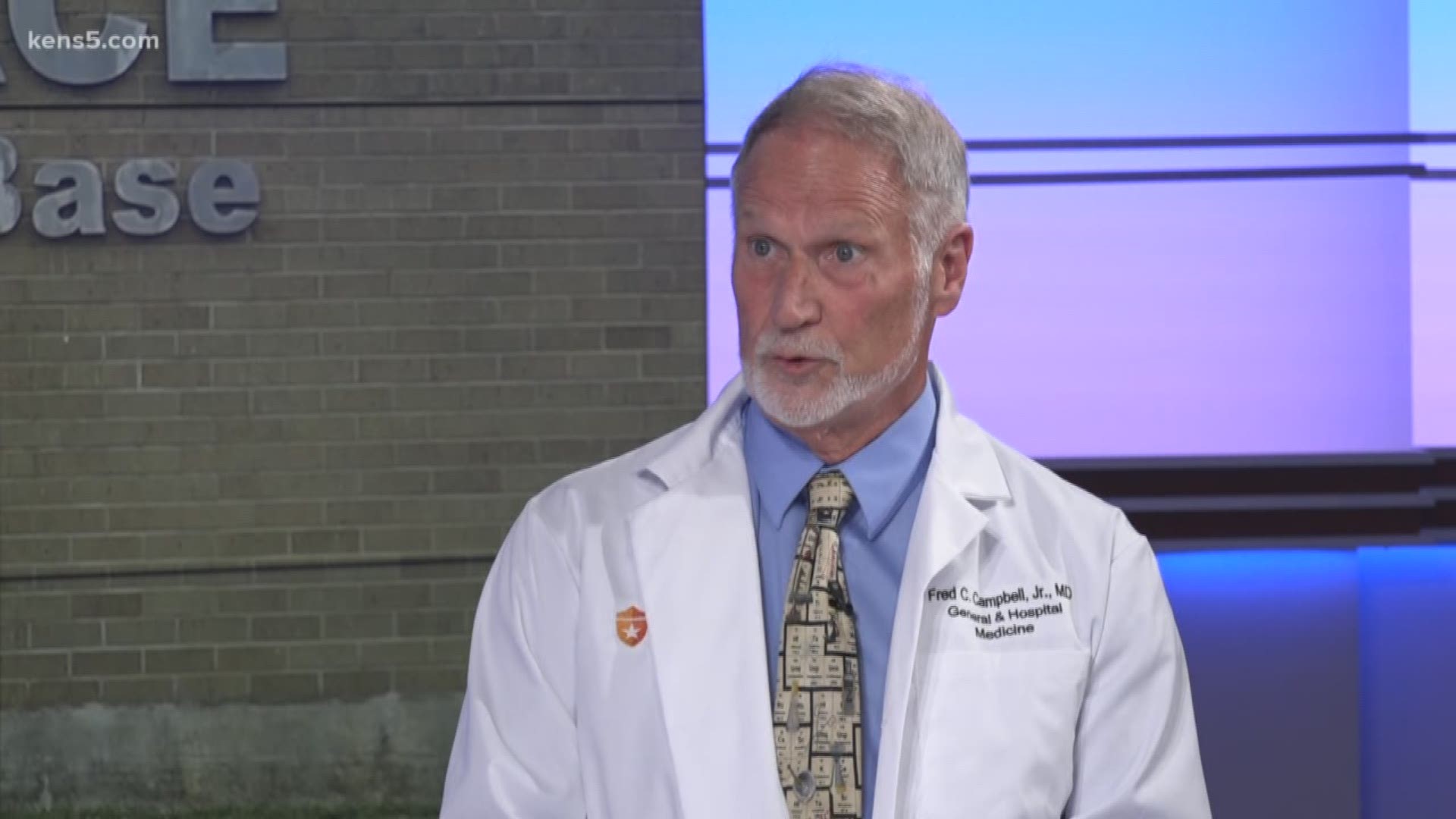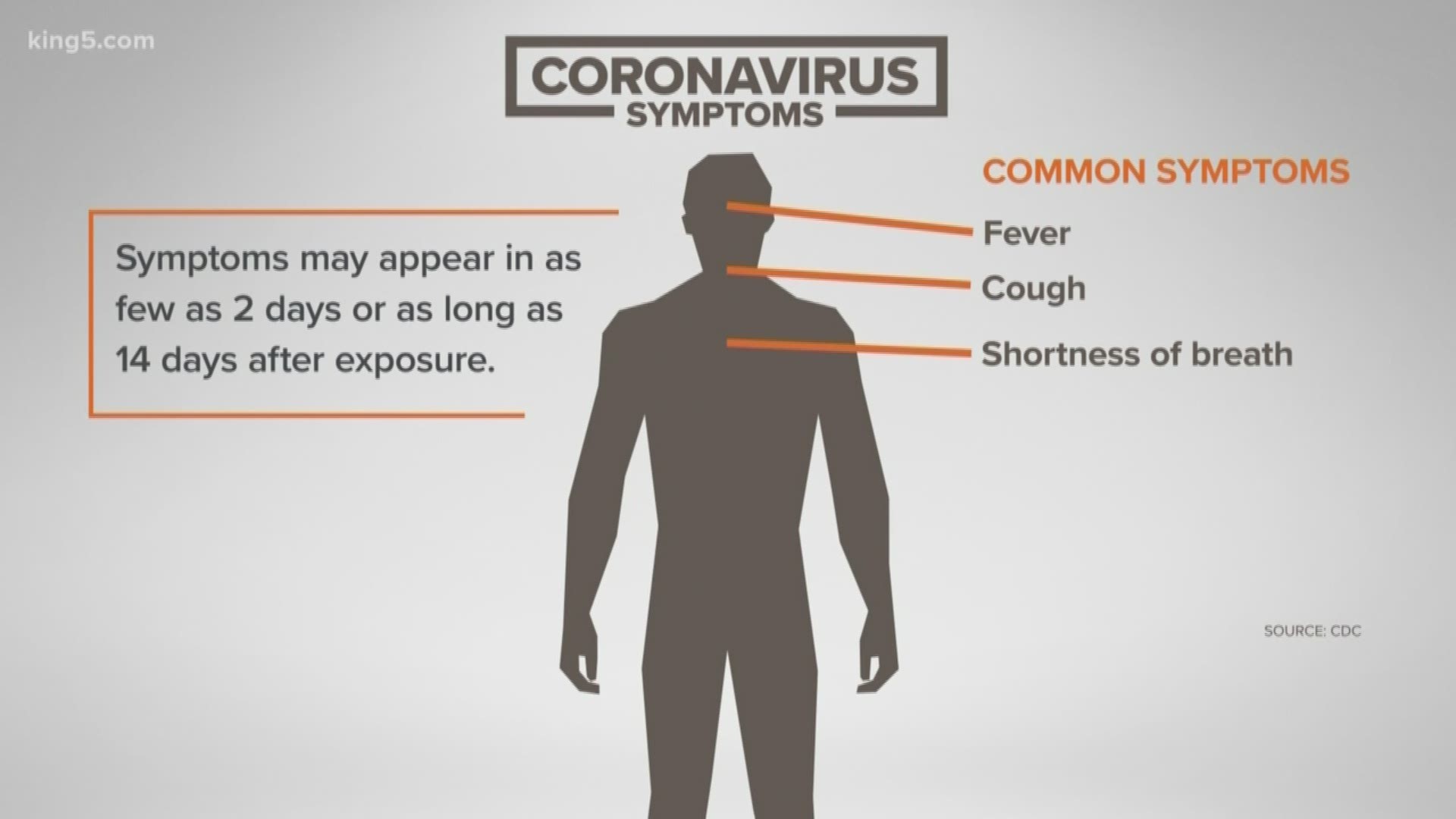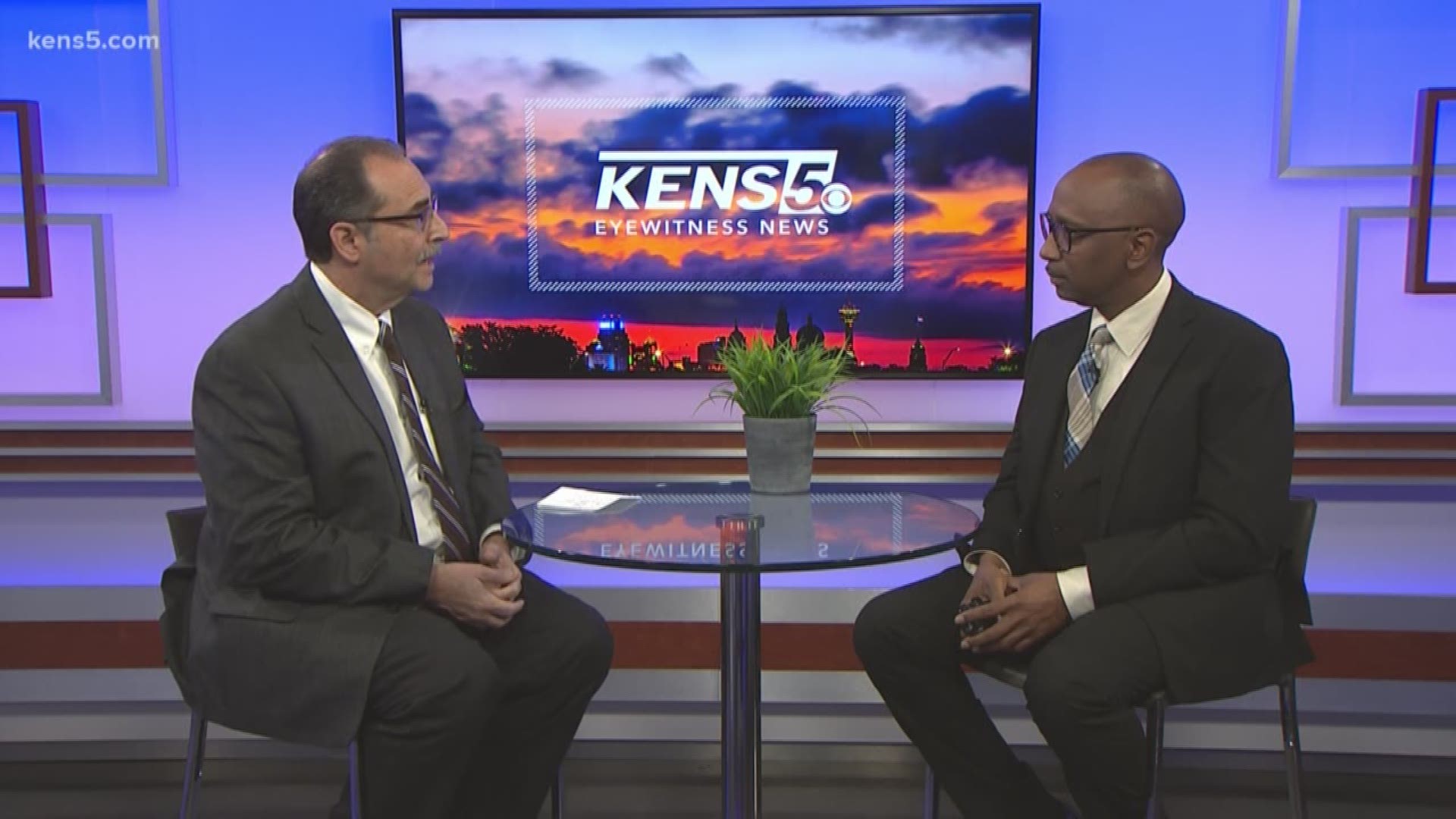SAN ANTONIO — Following the first documented case of a person with coronavirus being exposed to the San Antonio community, health officials are urging residents to maintain good hygiene and be aware of symptoms.
For instance, coronavirus can be similar to flu symptoms, so it's important for people to stay home from work or school if they are sick.
Here's what you need to know about the symptoms of coronavirus, officially called COVID-19, and how it spreads:
Where did it start?
The coronavirus originated in Wuhan, China, and initial cases in the U.S. were primarily seen in people who had traveled internationally.
However, Washington state has confirmed two people there have died of coronavirus. As the virus spreads, health officials say they expect to see more cases that aren't travel-related.
Two groups of international travelers were brought to Joint Base San Antonio-Lackland for quarantine over the past several weeks. One of those travelers was released from quarantine Saturday, Feb. 29, and returned to isolation Sunday, March 1, following a positive coronavirus test.
What are coronavirus symptoms?
The signs of coronavirus are similar to the flu or colds. Symptoms include a runny nose, headache, cough, sore throat, fever and a general feeling of being unwell.
The severity of symptoms ranges significantly. Some cases are very mild with symptoms similar to the common cold, and some cases are more like severe pneumonia that require hospitalization.
Most deaths have been reported in older adults who had other health conditions, health officials say.
Symptoms may appear as soon as two days after being exposed to the coronavirus or as long as 14 days afterward.
However, the CDC reports that because this is a new virus, health officials are learning more about it every day. The cycle of infection with COVID-19 is not yet well understood.
What can I do?
As coronavirus cases continue to be identified, health officials say it's important to maintain proper health hygiene.
This means washing hands with soap and water and avoiding touching your eyes, nose and mouth.
You also should avoid large, crowded areas if possible. Anyone who has cold symptoms and feels sick should stay home from work or school.
More coronavirus coverage:
- Released San Antonio patient tests positive for coronavirus, CDC says
- What to know about coronavirus after reports of first US deaths
- Thousands sign petition calling on SXSW to cancel 2020 event as coronavirus spreads
- How Metro Health says we should prepare if coronavirus spreads to general community
- VERIFY: Fact-checking this week's viral coronavirus claims
- Coronavirus: Answering the top 10 questions people have been Googling
- Facts Not Fear | What you need to know about the COVID-19 outbreak




